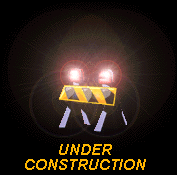|

Normal Death
In death, as
it usually occurs in severe acute or chronic disease, the heart beat and pulse first cease at a time when not only the heart,
but the organism as a whole is so affected by the disease that survival is no longer possible. Attempts at resuscitation in
such cases of normal death are purposeless and meaningless.
Sudden Death
Cardiac arrest which
continues after the heart has first stopped leads, to death within a few minutes. That is to say, the end result of a
"longer-lasting" cardiac arrest is sudden death.
Cardiac Arrest
The term cardiac arrest means the sudden cessation
of the pumping action of the heart in an intact, or nearly intact, organism. It is only the heart, or primarily the heart,
which is diseased and fails. The cardinal clinical symptom in cardiac arrest is sudden loss of consciousness, since the cells
of the cerebral cortex are very sensitive to oxygen lack and are paralyzed within 8—20 seconds when blood ceases
to flow (sooner in the old, later in the young). To start with, there is only a functional paralysis, but after 4—6
minutes, the cells die, usually first in the brain, soon after in other vital organs as well .
Adams-Stokes Attacks
Sometimes the heart
restarts spontaneously before the circulatory arrest has led to permanent cell injury. Such short-lasting episodes of
cardiac arrest with spontaneous recovery are called Adams-Stokes attacks. Depending on how rapidly the heart starts
again, the attacks are characterized by shorter- or longer-lasting losses of consciousness in the form of absence, black
out, or fainting. The loss of consciousness often occurs without warning and without the patient experiencing any symptoms
from the heart. In some cases, clonic or tonic seizures are seen. Short-lasting cardiac arrests with spontaneous recovery
often augur a later longer-lasting, deadly cardiac arrest. Thus, an Adams-Stokes attack is a clinical symptom which always
should be taken seriously, since it can portend sudden death .









|
